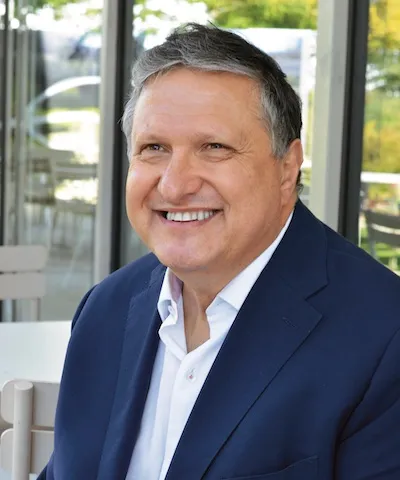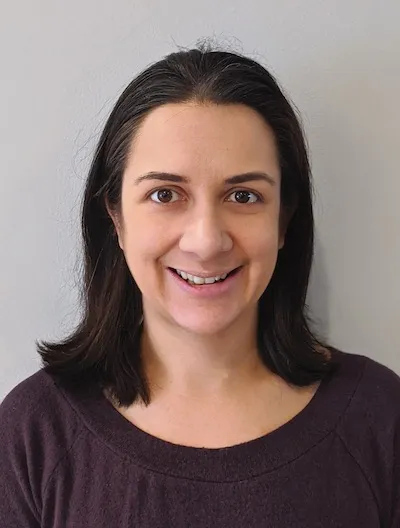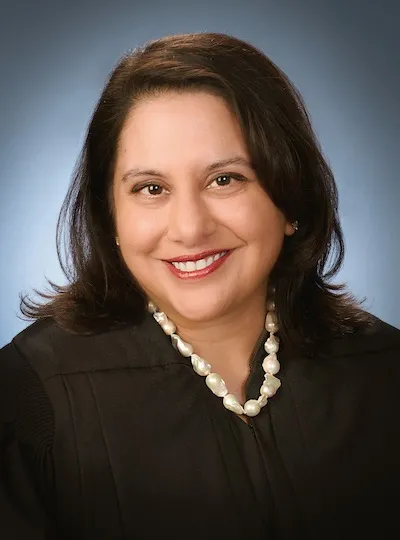Law School Scholars Share Expertise on the Crisis in Policing
Less than three weeks after George Floyd’s brutal killing by Minneapolis police, the Law School convened a virtual colloquium to examine the crisis in policing—a conference that led to a robust seven-part discussion series over the summer. Both were part of a comprehensive response by Law School scholars, many of whom have been at the forefront in pushing for reforms through both academic research and clinical advocacy.
“These are complex challenges, and to meet them we need expertise from people who have closely studied issues of policing as well as those who have worked to make policing more fair,” Dean Thomas J. Miles said. “Universities are in a distinct position to provide this knowledge and to serve as a venue for thoughtful and meaningful discussions.”
The Law School’s faculty includes top experts on policing, criminal justice, and race and the law. Through their research, some have examined and developed key insights on use-of-force policies, accountability and oversight systems, the doctrine of qualified immunity, the ways in which police unions and municipal insurers can influence police misconduct, and more. Clinical faculty members have worked on groundbreaking litigation exposing racial bias in policing, improving legal standards for people seeking discovery about racial discrimination by police, protecting police misconduct records from destruction, and more.
Below is a roundup of just a few recent contributions by Law School professors. To read more about faculty work in this area—including recent media appearances and complete video from the June colloquium and the summer discussion series—please visit our Policing page.
Colloquium on the Crisis in Policing
The virtual conference was organized by then-Deputy Dean Richard McAdams, the Bernard Meltzer Professor of Law and a leading expert on criminal law, criminal procedure, and criminal justice. Participants included Professor John Rappaport; Clinical Professor Craig Futterman, director of the Civil Rights and Police Accountability Clinic; Professor from Practice Sharon Fairley; Associate Clinical Professor Claudia Flores, director of the Global Human Rights Clinic; Aziz Huq, the Frank and Bernice J. Greenberg Professor of Law; Clinical Professor Herschella Conyers, director of the Criminal and Juvenile Justice Clinic; Mary Anne Case, the Arnold I. Shure Professor of Law; Jonathan Masur, the John P. Wilson Professor of Law and the director of the Wachtell, Lipton, Rosen & Katz Program in Behavioral Law, Finance and Economics; Clinical Professor Alison Siegler, director of the Federal Criminal Justice Clinic; and Professor Sonja Starr, who joined the faculty on July 1. Watch the event.
Summer Discussion Series
The seven-part series was moderated by Emily Buss, the Mark and Barbara Fried Professor of Law, whose work centers on children in the juvenile justice system. The series kicked off on July 1 with Professor Dhammika Dharmapala and Starr discussing “Social Science Perspectives on Racial Disparities, Policing, and Crime.” The other sessions included: Fairley and Masur discussing “Civilian Control and Discipline of Police, Public and Private”; McAdams and Case on “Police Culture, Training, and Unions”; Flores and Rappaport discussing “Police: Hiring, Certification, and Use of Force Policies”; Huq and Siegler on “Race, Equal Protection, and Policing”; Conyers and Rappaport discussing “Policing and Substantive Criminal Law: Over-criminalization and Police Defenses”; and Futterman and Professor Will Baude on “Civil Lawsuits and Qualified Immunity.” Watch recordings of the discussions.
Advocating for Accountability
In June, the Civil Rights and Police Accountability Clinic, led by Futterman, won an important case before the Illinois Supreme Court that saved thousands of police misconduct records from being destroyed. The Fraternal Order of Police had argued that its contract called for the destruction of complaint records older than five years. The court in a 7-1 ruling disagreed, saying that state law, which requires the preservation of important documents that belong to the public, overrides the language in the union contract. Futterman, a leading advocate for police accountability, has been involved in other recent efforts. Among them: his clinic won a federal consent decree over the Chicago Police Department on behalf of a community-based coalition to address patterns of civil rights violations; the coalition convened public hearings in federal court on police violence against people who participated in the protests in Chicago this summer; his clinic is seeking the overhaul of the Chicago Police Department’s search warrant process; he is on a community working group that is making recommendations to rewrite Chicago police policies on the use of force; and the clinic brought a mandamus action to enforce the right of people detained in police stations to access a phone and counsel.
Research on Wandering Officers, Collective Bargaining, and More
Rappaport and a co-author released “The Wandering Officer,” one of the largest quantitative studies of police misconduct and the first to systematically examine the practice of hiring police officers who had been fired by another law enforcement agency. The authors analyzed data on 98,000 full-time police officers in Florida over a 30-year period and found that those who had been fired for misconduct from another agency were more likely to be fired again and more likely to face complaints for violent or sexual conduct. The research showed that at any given time about 1,100 “wandering officers” were re-employed by other agencies across Florida, accounting for about 3 percent of all full-time officers in the state. In addition, he, Dharmapala, and McAdams wrote “Collective Bargaining Rights and Police Misconduct: Evidence from Florida.” In that work, they found that extending collective bargaining rights to sheriffs’ deputies in Florida led to a 40 percent increase in violent misconduct. Earlier this year, Rappaport—who has extensively studied the role of private insurers in regulating police misconduct, a topic he spoke on at the annual Emeritus Lecture—also released research on police liability insurance claims that suggests that police behavior may not be getting worse, but rather society is becoming less tolerant of policing harms. All of these works have been cited in recent media coverage.
Groundbreaking Litigation
Siegler, who led the Federal Criminal Justice Clinic’s groundbreaking fake stash house litigation, which exposed racial discrimination in an entire category of federal criminal cases, discussed the litigation in a forthcoming paper she co-authored with William Admussen, ’20. The clinic’s fake stash house litigation improved the legal standard in three federal courts of appeals for people seeking discovery about race discrimination by police, and in “Discovering Racial Discrimination by the Police,” Siegler and Admussen argue that a similar standard should be adopted by state and other federal courts. The clinic was also honored earlier this year with the 2020 CLEA Award for Excellence in a Public Interest Case or Project for spearheading the litigation, which challenged the practice by the federal Bureau of Alcohol, Tobacco, Firearms, and Explosives of luring unsuspecting people of color into schemes to rob non-existent drug stash houses.
Studying Police Oversight
Fairley earlier this year released research showing that systems of police accountability and oversight were growing nationwide but continue to face challenges. Her report is based on a 2019 study of 100 American cities and is accompanied by an interactive website where visitors can learn about the civilian oversight agencies operating in each of the 100 cities, including the oversight functions they provide, a description of their mission, and the year they were formed. Before joining the Law School, Fairley, a former federal prosecutor, was involved in Chicago police reform efforts, serving as chief administrator of the Independent Police Review Authority and later creating and building Chicago’s Civilian Office of Police Accountability.
Examining Use-of-Force Policies
Research by the Global Human Rights Clinic, led by Flores, found that police department use-of-force policies in the nation’s 20 largest cities fail to meet international human rights standards. Clinic students reviewed the 2018 police department policies in the 20 largest cities of the United States and graded them using a system developed from international human rights law and standards on police lethal use of force. The report, “Deadly Discretion: The Failure of Police Use of Force Policies to Meet Fundamental International Human Rights Law and Standards,” recommended steps Congress, state legislatures, and police departments should take to bring police use-of-force policies into compliance with human rights standards. Note: The clinic, formerly known as the International Human Rights Clinic, has been renamed.
A Look at Qualified Immunity
In media interviews and at the Law School’s speaker series, Baude discussed qualified immunity, the US Supreme Court legal doctrine that shields police from most civil lawsuits and is seen by some as an impediment to police accountability. In his 2018 paper, “Is Qualified Immunity Unlawful?” Baude argued that the doctrine lacks legal justification. In interviews this summer, he argued that reforming or abolishing the doctrine would send the message that police are not above the law.
***
To read more about faculty work in this area—including recent media appearances and complete video from the June colloquium and the summer discussion series—please visit our Policing page.


